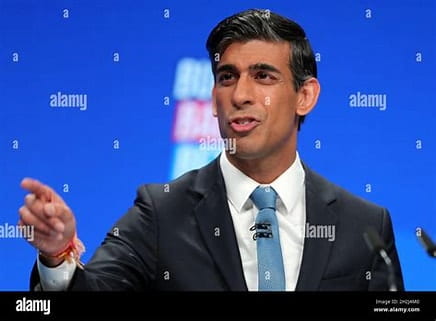On October 4th, 2023, at the Conservative Party conference in Manchester, Prime Minister Rishi Sunak announced his plan to phase out cigarette smoking in the UK by raising the minimum smoking age from 18 every year until eventually no person can legally buy cigarettes, the ban comes into effect against people born in 2009 and later. According to a press release from the Government their aim is “to introduce a historic new law to stop children who turn 14 this year or younger from ever legally being sold cigarettes in England, in a bid to create the first ‘smokefree generation.” The Government press release says that “Smoking is the UK’s biggest preventable killer – causing around 1 in 4 cancer deaths and leading to 64,000 deaths per year in England. It puts huge pressure on the NHS, with almost one hospital admission every minute attributable to smoking and up to 75,000 GP appointments each month taken up by smoking-related illness.”
Reducing the prevalence of smoking by 5% could avoid nearly 100,000 new cases of smoking-related disease including 35,900 cancers over twenty years and save £67,000,000 a year in health- and social-care costs, according to research commissioned by Cancer Research UK. Michelle Mitchell, the chief executive of Cancer Research UK, said: “Raising the age of sale on tobacco products is a critical step on the road to creating the first ever smoke-free generation. If implemented, the prime minister will deserve great credit for putting the health of UK citizens ahead of the interests of the tobacco lobby.” It has been estimated by Cancer Research UK that smoking is the single greatest cause of preventable illness and early death, with around 107,000 people dying in 2007 from smoking-related diseases, including cancers, in the UK. Around 86% of lung cancer deaths in the UK are caused by tobacco smoking; overall tobacco smoking is estimated to be responsible for more than a quarter of cancer deaths in the UK. The Government website says that “Smoking is the UK’s biggest preventable killer – causing around 1 in 4 cancer deaths and leading to 64,000 deaths per year in England. It puts huge pressure on the NHS, with almost one hospital admission every minute attributable to smoking and up to 75,000 GP appointments each month taken up by smoking-related illness.”
Here is Twitter/X thread giving a timeline of anti-smoking legislation in the UK,
In 1962, over 70% of British men and 40% of British women smoked. As recently as 1974, 45% of the British population smoked. This was down to 30% by the early 1990s, the measures introduced in the 2000’s helped to reduce the number of British smokers to 21% by 2010, and 19.3% by 2013, the lowest level recorded for eighty years. In 2015, it was reported smoking rates in England had fallen to just 16.9%, a record low.
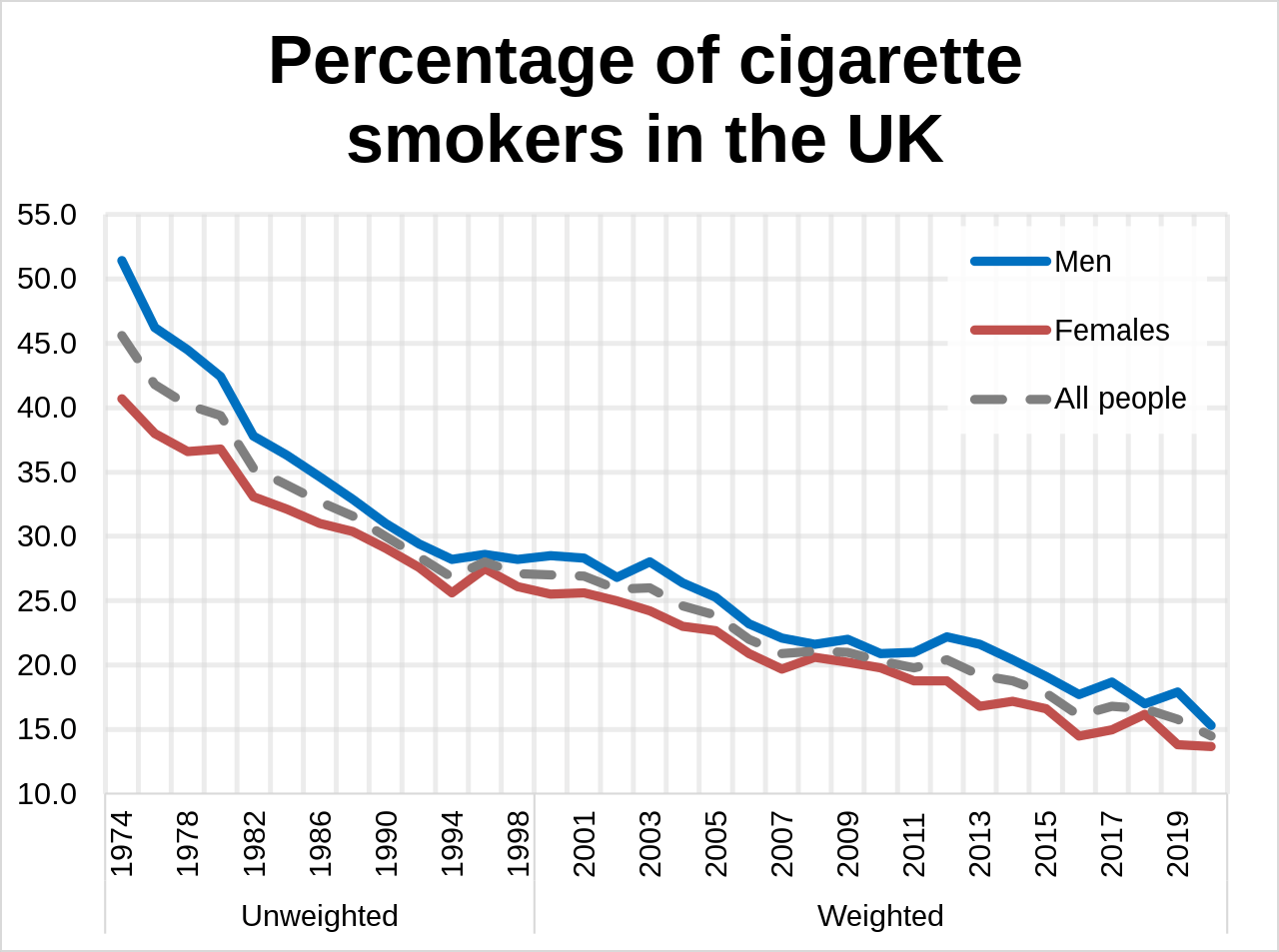
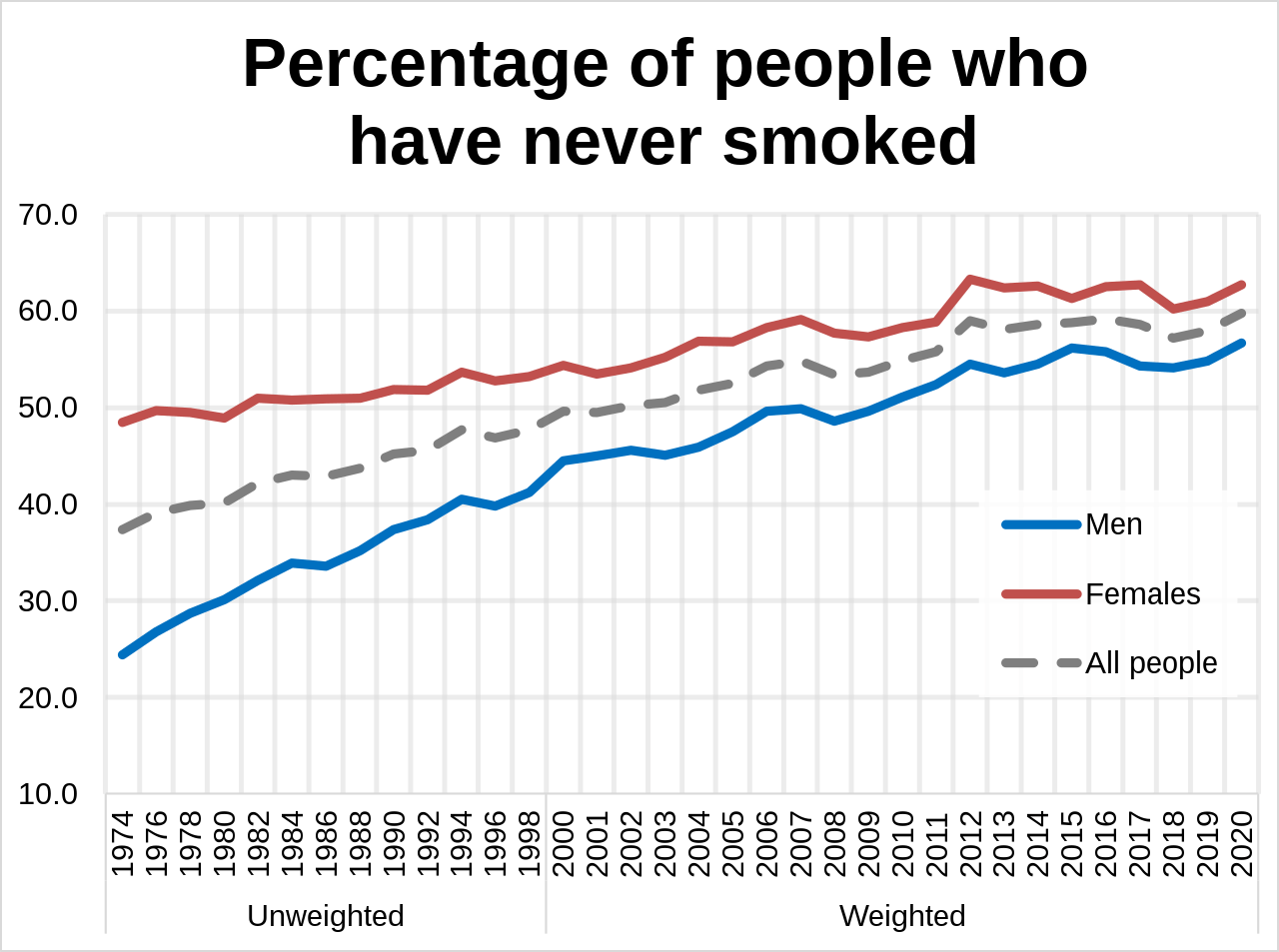
However, there are still those who smoke although even though there has been a 54.1% decrease in the total number of smokers there are many who still chose to smoke. The Freedom Organisation for the Right to Enjoy Smoking Tobacco (F.O.R.E.S.T) is a smoking rights advocacy group, Simon Clark the director of F.O.R.E.S.T wrote that, “These are desperate measures by a desperate prime minister. Raising the age of sale of tobacco is creeping prohibition, but it won’t stop young people smoking because prohibition doesn’t work. Anyone who wants to smoke will buy tobacco abroad or from illicit sources.” These fears of a black market opening up for the purchase of cigarettes aren’t unique to those at F.O.R.E.S.T as recently New Zealand’s newly installed government has scrapped a smoking ban that the UK is set to copy, but the new Kiwi prime minister Chris Luxon, along with some lawmakers, believing that a blanket ban on selling tobacco to a younger generation would lead to a lucrative black market for smoking products. The ban in New Zealand was only implemented in 2021 so the ban was only in place for 2 years so this means that the ban did not really get the chance to see if it would be effective in combatting smoking. It is important to point out that the main reason for the cancellation of New Zealand’s ban was so that the move was made to fund tax cuts that the government promised in its election campaign.
Away from the potential for the creation of a black market Clark of F.O.R.E.S.T also wrote about the concern that this strips freedom away from individuals saying that, “future generations of adults who are considered old enough to vote, pay taxes, drive a car and drink alcohol are going to be treated like children and denied the right to buy a product that can be purchased legally by people a year older than them.” He also goes on to write “the prime minister has just taken a wrecking ball to the principles of choice and personal responsibility.”
I spoke to a former smoker to find out their opinions on smoking and the forthcoming ban.
The use and sale of vaping products is not affected by Sunak’s ban. There were estimated to be 3 million e-cigarette users in Great Britain, with approximately half reporting using them as an aid to stop smoking and according to the annual Smokefree GB survey, published in May 2017, concluded that 52% of the 2.9 million British e-cigarette users are now ex-smokers with 26% of respondents thought e-cigarettes were as harmful as real cigarettes. This could be potentially a huge mistake from Sunak as if once further research is conducted into the health ramifications surrounding vaping concludes that there is a similarly negative impact as that of smoking then it will become yet another astounding loss for Sunak and the Conservative party as it would render the smoking ban pointless as many smokers who may switch to vaping as an alternative to the ban may now have had their time forcefully wasted.
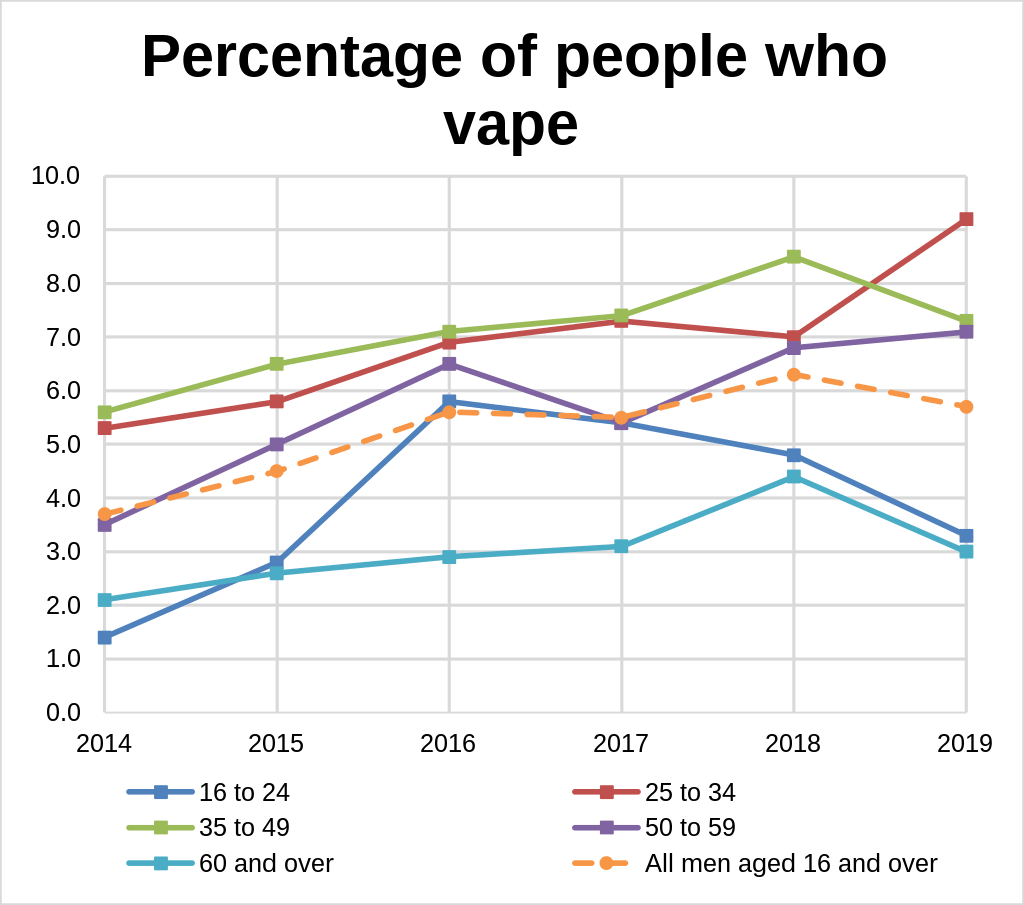
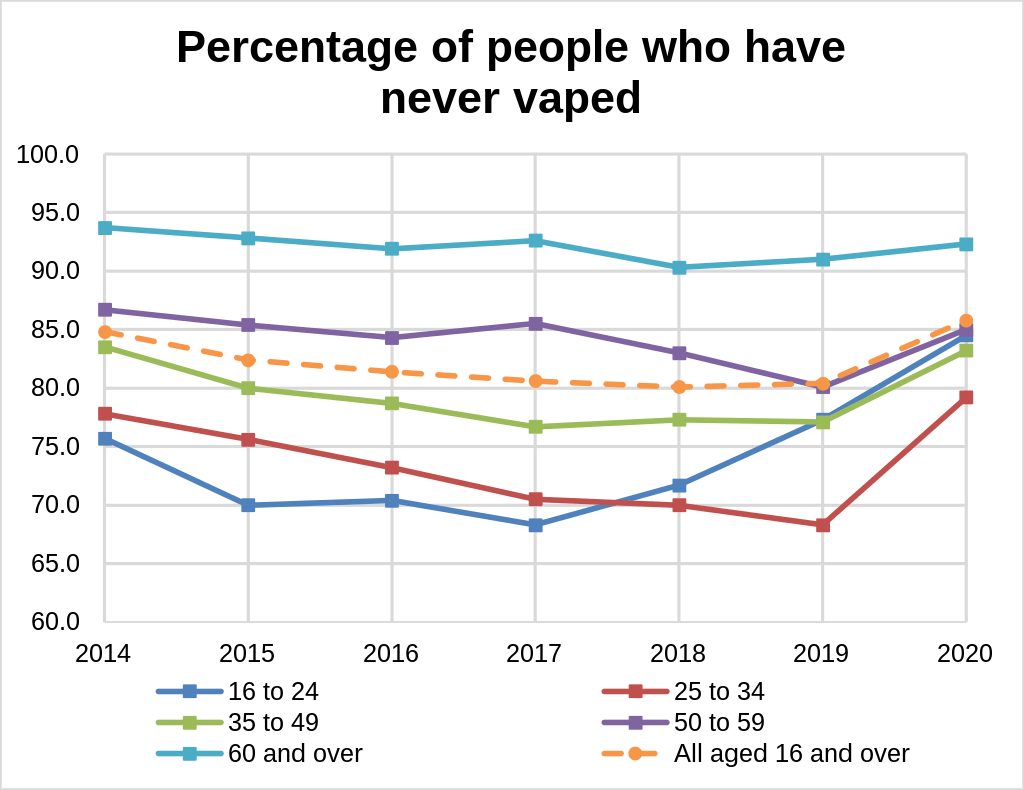
There has also been some criticism towards this smoking ban as there is a belief that there are more important health issues than smoking that should take priority over the introduction of a smoking ban, this criticism has been led in part by the Daily Mail’s senior health reporter John Ely who believes that Sunak’s Government should be acting against obesity in Britain this criticism comes from the point of view mostly that obesity related health complications are actually more detrimental to the NHS stating that obesity related health complications cost the NHS roughly £27 billion a year which is £10billion more than smoking related health complications. Ely also mentioned that smoking has been on the decline in the last 10 years, meanwhile obesity has been on the rise. This fact links to the criticism from Simon Clark of F.O.R.E.S.T towards Rishi Sunak, “These are desperate measures by a desperate prime minister.” It is reasonable to speculate that Sunak who is continually declining in popularity is instituting this ban in part for the sake of his own ego as smoking is on the decline meaning that if the decline continues, he can point to this as a part of his legacy as his time as PM when all he really would have done is just capitalise on the opportunity to make himself look good.
I spoke to someone who will be affected by the ban once it is enforced.
This brings up an important question around how this ban will actually be enforced as it is entirely possible that those affected by the ban will find work arounds such as getting people they know who are unaffected to purchase smoking products for them.
